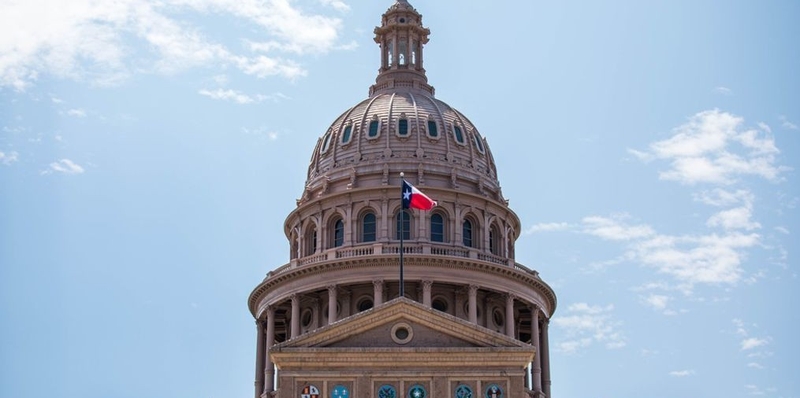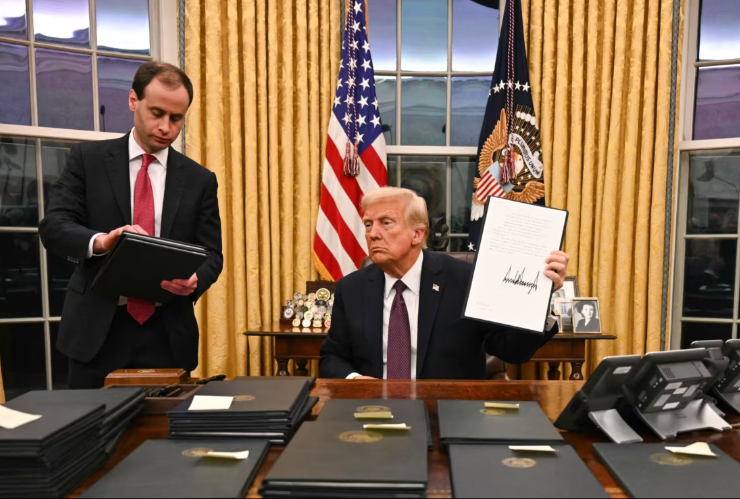State Attorneys General Challenge ESG and DEI Policies in Major Financial Institutions

In a significant escalation of the ongoing debate over environmental, social, and governance (ESG) and diversity, equity, and inclusion (DEI) policies, Texas Attorney General Ken Paxton, alongside 10 other state attorneys general, has issued a stark warning to major financial institutions. The officials have threatened enforcement actions if these institutions are found to violate state or federal laws through their commitments to ESG and DEI initiatives.
The controversy centres on allegations that financial giants such as BlackRock, Goldman Sachs, JPMorgan Chase, Bank of America, Citigroup, and Morgan Stanley are prioritising political agendas over their legal, contractual, and fiduciary obligations. In a letter addressed to these institutions, the attorneys general expressed concern that “political objectives have, in some cases, influenced your decision-making at the expense of your statutory and contractual obligations.”
The letter specifically accuses these firms of advancing “race- and sex-based quotas” and making business decisions “not on maximising shareholder and asset value, but in the furtherance of political agendas.” The document provides the following examples:
“First, quotas. In 2021, BlackRock announced specific employment percentage targets based on race and sex. Second, pressuring employees. We understand that to meet these quotas BlackRock includes diversity, equity, and inclusion ('DEI') goals in employee performance reviews, and the employees’ 'year-end bonus pool allocation' partially depends on meeting DEI goals. JPMorgan Chase pledged to hire 4,000 Black students by 2024. JPMorgan Chase’s CEO stated that the company hired employees whose 'only job' was to help 'increase Black executive directors and managing directors.' In its 2023 Annual Report, Goldman Sachs set race- and sex-based hiring goals. Morgan Stanley aims to hit specific percentages of officers who are women or specific races. Bank of America imposes 'business-specific, action-oriented' diversity goals as part of a scorecard for each management team member. And Citigroup aims to have its workforce meet specific racial percentages by 2025.”
The attorneys general argue that such practices may violate federal and state anti-discrimination laws.
Legal Action Against Asset Managers
The lawsuit and accompanying warnings have drawn support from attorneys general in Alabama, Arkansas, Indiana, Iowa, Kansas, Missouri, Montana, Nebraska, West Virginia, and Wyoming. The suit alleges that the financial institutions’ actions leveraged their substantial holdings in major coal companies to pressure them into reducing coal production to meet climate-related investment objectives. According to the complaint, this strategy – aligned with initiatives like the Net Zero Asset Managers Initiative and Climate Action 100+ – has artificially constrained the energy market, driving up costs for consumers.
BlackRock and State Street have dismissed the allegations as unfounded. BlackRock described the lawsuit as “baseless” and argued that it undermines Texas’ reputation as a pro-business state. However, the attorneys general remain steadfast, seeking to prohibit these firms from using their investments to influence energy market policies and demanding civil penalties for alleged violations of federal antitrust and Texas consumer protection laws.
The Net-Zero Banking Controversy
The attorneys general’s scrutiny follows their prior actions against financial institutions participating in the Net-Zero Banking Alliance (NZBA), a global coalition of banks committed to aligning their lending and investment portfolios with net-zero emissions by 2050. Under pressure from Paxton and his counterparts, all major U.S.-based banks have withdrawn from the NZBA, including Wells Fargo, which exited after being warned of potential legal consequences.
Texas law, specifically Senate Bill 13, prohibits state entities from contracting with companies that boycott fossil fuel industries. Paxton’s office had been reviewing Bank of America, Morgan Stanley, and JPMorgan Chase for their NZBA memberships but announced that these reviews would be closed following their withdrawals from the alliance.
In an official document reviewing NZBA members’ compliance with state law, Paxton’s office outlined its concerns:
"This Office is reviewing whether companies or any affiliates that are members of a Net Zero Alliance are companies that boycott energy companies in violation of Senate Bill 13."
The Broader Implications
The actions of the attorneys general reflect a growing backlash against ESG and DEI policies, particularly in conservative-led states. Critics argue that these initiatives often prioritise political objectives over financial performance, potentially violating fiduciary duties. Supporters, however, contend that ESG and DEI policies are essential for promoting long-term sustainability and social equity.
The outcome of this dispute could have far-reaching implications for the future of ESG and DEI in corporate America, shaping how financial institutions balance political objectives with their legal and fiduciary responsibilities.



